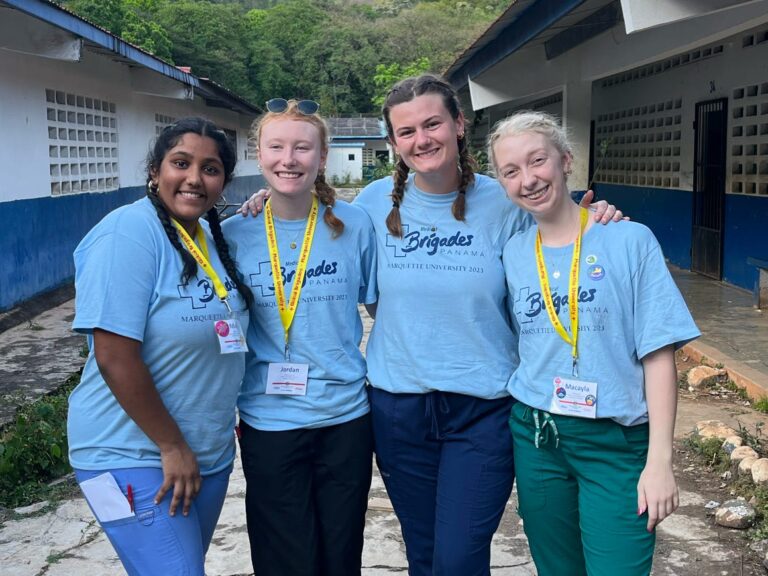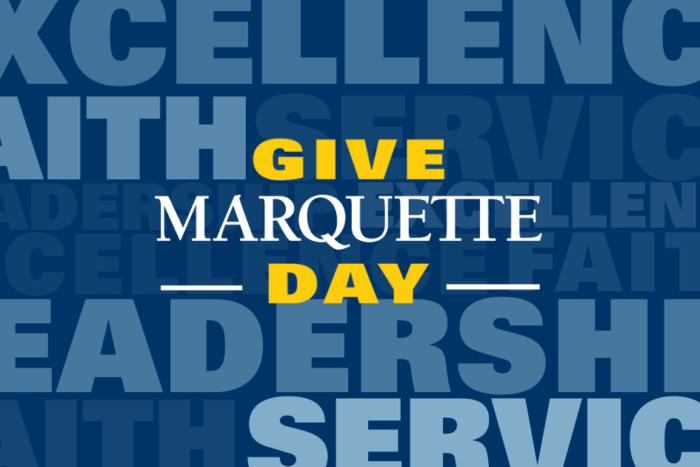In 2003, Shital Chauhan Vora, H Sci ’04, PT ’06, had a vision to create an immersion experience for students to travel to Central America to provide important care to those in need and instill best health practices in impoverished communities.
Over 20 years later, students in the College of Health Sciences continue Vora’s work, but with an additional context in mind: this year’s mission theme, en todo amar y servir or “in everything to love and serve.”
The phrase, which comes from the fourth week of St. Ignatius’ Spiritual Exercises, is meant to call on the campus community to serve others with love in Milwaukee, our country, and our world.
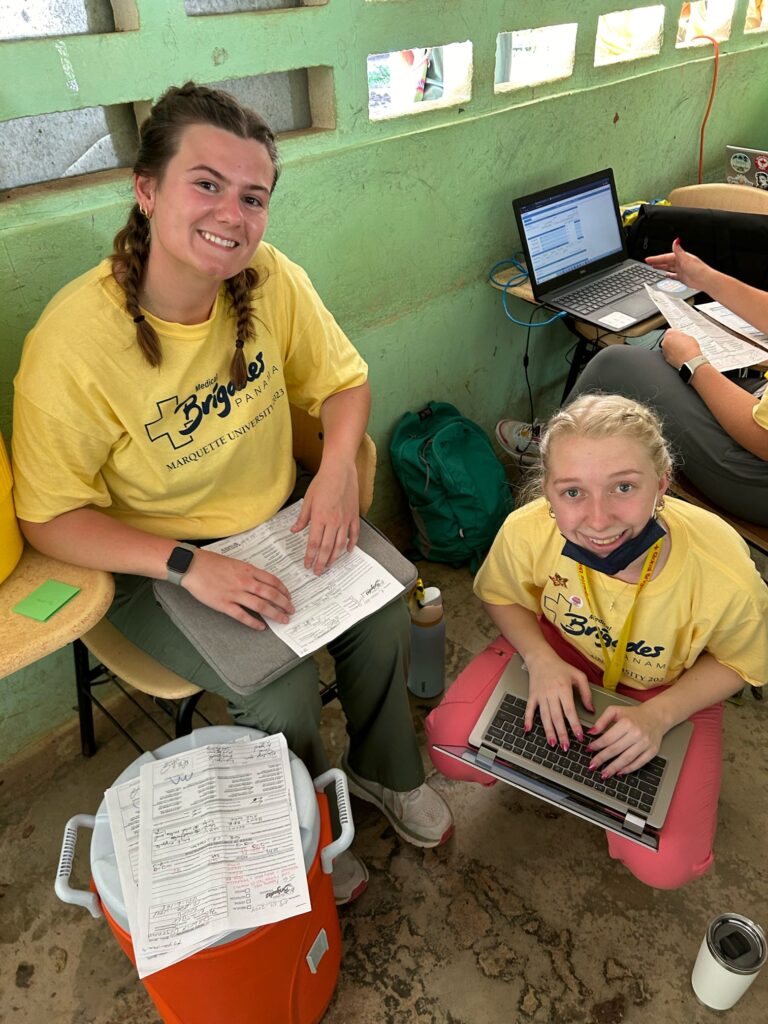
So, when a Marquette chapter of Global Brigades made the trip to Panama this year, students felt appropriately inspired by the theme and were thinking about it during their weeklong trip, serving over 1,200 patients in four days over winter break.
“The value of Global Brigades is in working with the community,” says Isabelle Deming, a senior in biomedical sciences. “When you work with the community, it’s a trading of trust and respect — the foundational components of loving somebody.”
Deming says one of her watershed moments volunteering with Global Brigades came on her first trip while shadowing a physician treating a woman who was having trouble sleeping.
“She told us that when she was up at night, she would write out Bible verses on sheets of paper,” Deming recalls. “Neither I nor the doctor spoke a lot of Spanish, but we were there for her and listened to her troubles.
“Before she left, she handed each of us one of the verses she had written down, thanked us for being there and told us how much our presence meant to her community. I still have the verse in my journal at home and something I’ll keep forever.”
As the cohort was serving its record number of patients during this year’s trip, junior biomedical sciences student Macayla Portz says being one of the chapter leaders allowed her to pause and appreciate the work that was happening around her.
“While everyone was tired after late nights and early mornings, nobody ever complained and were always seeking new ways to help the cause,” Portz says. “Everyone in our group stepped up when it really mattered.”
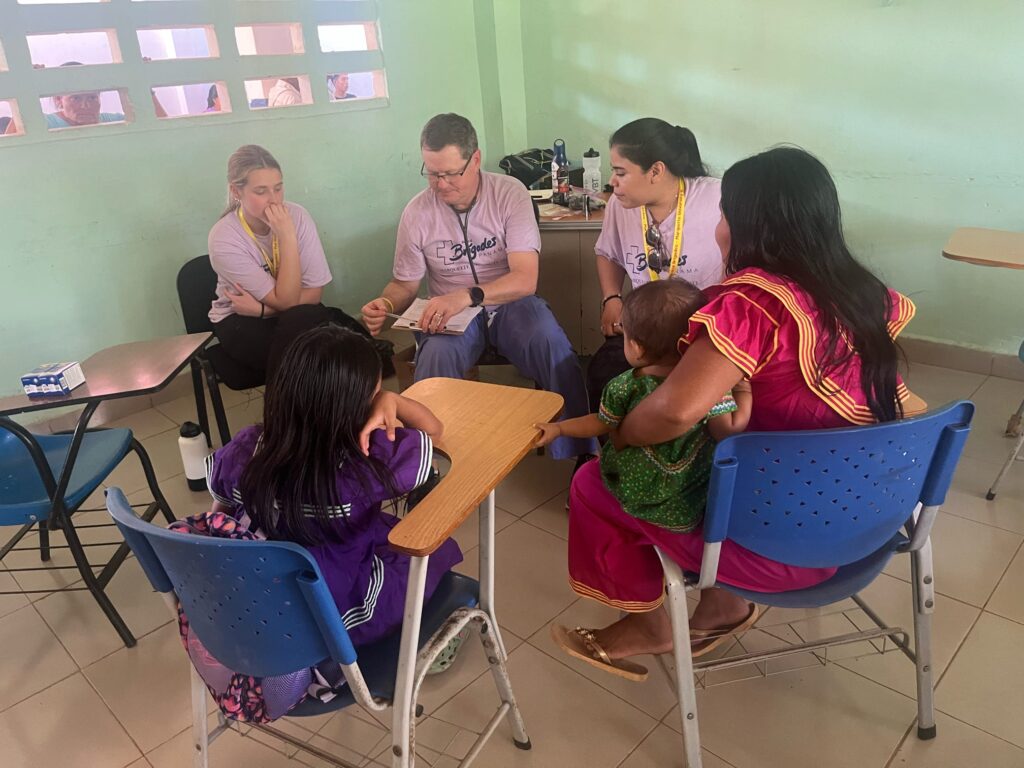
Sophomore biomedical sciences student Mahi Talasila, also a group leader, thinks the team’s perseverance stems from a recognition of how critical the work is to the people in the community.
“We know the value of the connection and gratitude these people have,” Talasila says. “We want to do anything possible to make their time well spent visiting the clinic.
“It’s only a week out of our lives, but this is the only week out of their lives that they’re getting accessible health care. A week of sacrifice from us can make a world of a difference for them.”
While medical needs are initially among the most prominent for rural communities served by Global Brigades, a key to the organization’s success is its holistic approach to sustainable development, with programs focused on key health and economic factors that dramatically boost the well-being of communities when implemented together. In addition, Global Brigades employs local team members who work year-round to execute programs alongside communities in areas that include public health, water, environmental sustainability, microfinance and business- all of which have contributed to its emergence as the world’s largest student-driven humanitarian enterprise, with over 650 chapters at universities and colleges across North America and Europe.
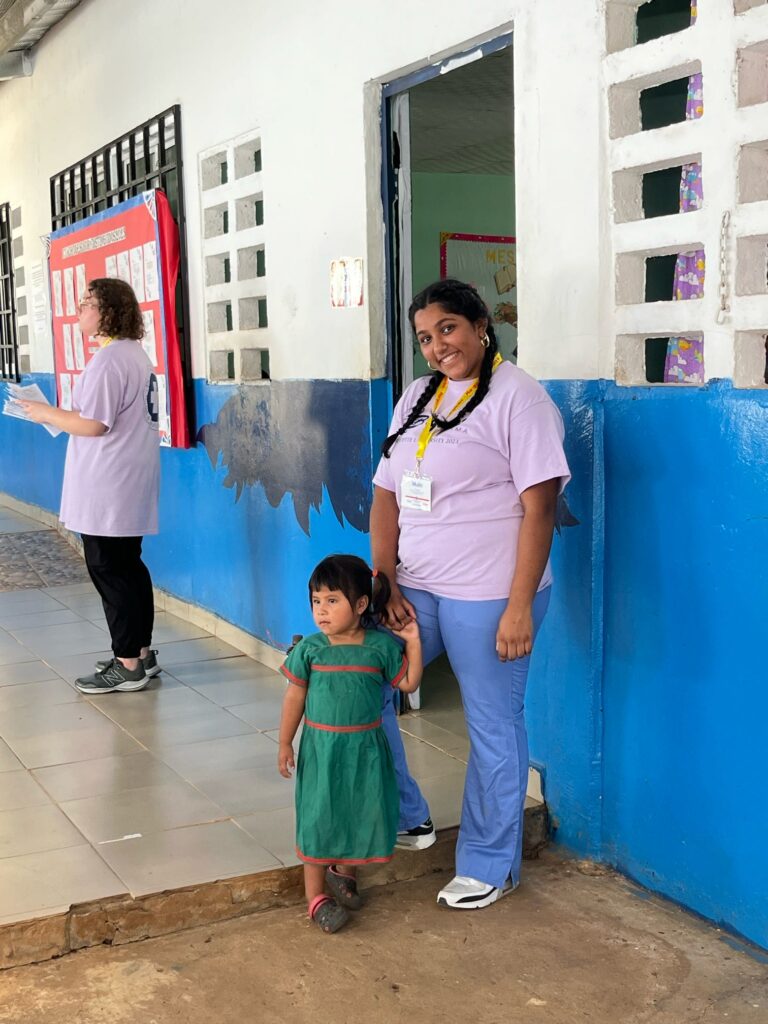
Beyond the international impact of Global Brigades, its focus on the individual remains its central mission. For senior biomedical sciences student Jordan De La Hunt, loving and serving while on brigade, like in conducting any kind of volunteer work, means taking time to learn a person’s story, shaking their hand and just showing a simple kindness — such as giving a pediatric patient some markers to color with while he waited to be seen.
“I sat down with him, colored and learned more about his life before he was seen by one of us,” De La Hunt says. “After he was done, he came over and tugged on my shirt and handed me the page he had colored. I still have it to this day and is something I cherish.”
Talasila believes the core reason why Global Brigades accomplishes the work it does is because the people involved genuinely want to love and serve.
“That is the basis of our connections in the community and why they’re so impactful for all of us,” Talasila says. “The passion comes from both sides: they want us to be there as much as we want to be there to help and if we didn’t volunteer with love, it wouldn’t be as meaningful.”
